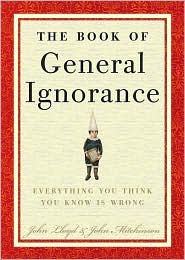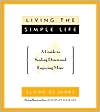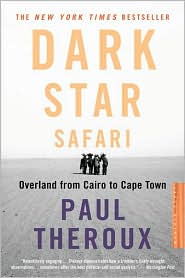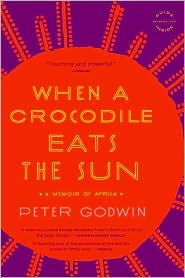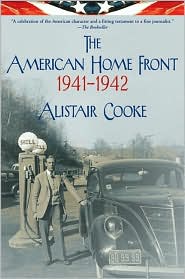I read a few articles in Florida newspapers this morning about the mortgage bailout plan and how it will affect Florida homebuyers. I don't claim to be an expert here, but I did buy a home in Florida just a few years short of the top of the housing price bubble, in autumn 2003. I did four things correctly: I bought as much home as I needed, not 1000 sf more because my realtor* talked me into it; I paid less than I could afford to for a home instead of maxing out my available financing and then some because my mortgage underwriter said I could; I paid less than my home appraised for instead of getting into a bidding war with other buyers and paying grossly over what the home was worth in the hopes that it would appreciate; and I made paying down the principle on my home a priority with my extra money instead of spending it on $10,000 overpriced home entertainment systems and $3200 overpriced Ethan Allen sofas to go with my overpriced home.
Now some of my tax money is going to be spent bailing out people who did NOT do those smart things I did. But you know what? I'm okay with that (especially considering that this year at any rate I didn't pay any taxes (apart from a few bucks to the state of South Carolina, not even enough for them to change a light bulb in a traffic signal). Our government encouraged people to become homeowners, but failed to regulate the people writing the mortgages to prevent what was already clearly by 2003 an unsustainable asset-price bubble in the real estate market (in Florida, certainly; maybe not here in SC) from developing into the situation we have now. I'd love to blame mortgage companies for this but many of mortgage underwriters and realtors who misbehaved over the past five years are out of jobs now so they're getting theirs.
I do think we need to bail out certain homeowners, but let's not go overboard here. I made smart decisions when I bought a home and I bought during the bubble; making smart decisions meant that when I sold my home, after the bubble had burst, I actually still made money on the deal, enough to pay of my mortgage and pay down some of our other debt. Thus I will never see a dime of bailout money even though, frankly,
smart people like me are the ones the government should be helping. People who got caught in the bubble are not the same as people who played a part in the bubble.
So let's be honest here. Let's say you bought a home on an interest-only mortgage. Ouch. That was stupid. I mean, that was really stupid. I have a lot of trouble saying any interest-only mortgages should be refinanced by the government, because, frankly, you shouldn't have bought one. What annoys me is that I know people who have such mortgages, and I
know they knew better. But let's go ahead and say if you meet other requirements below and are in danger of losing your home to foreclosure we might consider bailing you out after the other people who were smarter about their loans get their money first.
Let's say you bought a home for more than it appraised for at the time you bought it. Nowadays of course no responsible lender (that is to say, credit unions or USAA) would give you a mortgage for more than the appraised value of the home, but during the bubble such mortgages were being written right and left because
the people who should have known better decided to count on continued 20+% annual home price inflation, leaving it up to the consumer to back off and be the intelligent one. This annoys me; I dislike stupid people, but finance and real estate are complex fields and when the so-called experts in those fields are telling you to go for it, I can't really blame people for doing so. As long as they didn't overdo it; finance may be complex but I'm not going to absolve you of failing to budget your own money. Anyway, so if you bought a house that appraised for less than you paid for it at the time you bought it, I have no interest in helping you at all. But if the appraisal came in higher or equal to what you paid, okay. You certainly can't be faulted for paying what something was worth.
Unless, of course, you paid what the home was worth but it was way outside any rational budget of yours. Realtors and mortgage brokers definitely are guilty of trying to put people into more home than they could really afford, and mortgages were written that would stretch peoples' budgets simply because people let themselves be convinced that they were making an investment whose value would grow at a ridiculous rate so that the 40+% of their gross income they were paying to service their mortgage wouldn't seem so bad when they sold it at immense profit a few years later.
Oops.
We don't teach basic financial literacy in schools. Didn't when I went to school, or when Smittywife went to school, and we don't do it now. Maybe if your kid's lucky they'll get one financial literacy assembly taught by a friendly credit union employee during 11th grade or something, but that's hardly enough; and the fact is, since most people are financially illiterate, their kids end up that way, too.
But I'm not going to blame the schools. I'm going to blame us. We need to be smarter about our finances, all of us, every American; if we were we might not be so impressed by the willingness of our government to rack up a debt that will be close to 100% of our annual GDP by the time this recession is over (this is the point at which your government's sovereign debt becomes a "bad risk," barring 3+% annual GDP growth (which we don't have right now). We're heading that way quickly. I leave it to your imagination what the results of this will be; but I don't support GOP efforts to paint the stimulus package as a budget-buster, since they had six years of untrammeled power to do something about the debt and what they did was make it significantly bigger; you can't claim a "principled stand" when you clearly only have those principles when out of power)
Anyway. People need to understand their budget, where and how they spend their money, and how much of anything they can afford. It takes little more than basic math skills to do this; you know how big your paycheck is each month, and you know how much your bills are. You can buy a calculator at the dollar store that will do the subtraction for you if you're not good at math, and that's all it takes. Subtract what you know you pay from what you know you make, and see what's left. Figure out how much house you can afford,
then buy less. It's not hard. But most people failed to even consider this. So let's face it. If when you bought your house, you were paying 40% or more of your gross income on housing, you bought too much house. The fact is that your house may now be worth little enough that, with a government bailout and refinance, you could actually afford the payments.
Let me be clear: if that's the case, I
want bail you out. I want you to stay in your home, I want the mortgage to be refinanced so it's no longer "toxic," no longer a negative on a bank's balance sheet and a cause of potential bankruptcy to either you or the bank. The more foreclosures that go on the deeper and longer the house price slump will continue to be, and that's not going to help the economy. Throwing you out of your home and forcing your bank to take a loss--thousands of such losses--are not good for the economy. They're not what we should be doing in this country.
But I don't like the idea. We're rewarding your stupidity and the bank's greed and lack of concern for your ability to pay your debts. I don't want to reward your stupidity. I don't want to reward the bank's venality. No one learns any lessons that way and the next asset-price bubble will be just as bad. Yet I feel that for the health of the economy, for the sake of recovery, we need to do it. And that's what they're going to do, that's what this bailout will do (although I understand it's only for mortgages written by Freddie Mac and Fannie Mae, which while helpful doesn't seem to be enough to really fix the damage in the credit market).
But dammit let's have some regulation! Let's require that
everyone who gets a bailout must attend a six-week financial literacy course at their local community college (and yes, let's fund that; it won't cost very much and the benefits will be enormous). And let's put it into law right now: in future, the U.S. government will not bail out homeowners who purchased homes that were too expensive for them to afford. Live within your means, in other words; don't look to the nanny state for help. And let's regulate the hell out of the mortgage industry: no interest-only loans for owner-occupied housing; no adjustable-rate mortgages that will adjust by more than a certain percentage of the monthly payment; no sub-prime lending at all without requiring the borrowers to attend credit counseling and financial literacy courses and limit their payment to 30% or less of their monthly income; and so on. I'm sure people who are actually qualified to come up with such regulations could do better than me, but clearly such people either A) don't exist, or B) were MIA during the housing bubble, which is a serious concern. As soon as there's a buck to be made the responsible people vanished, it seems, if they were ever there.
Anyway. I felt like rambling about that. We do need to bail out some mortgages, but I'm going to reiterate that it's smart people who did the four things I did when I bought my house who really deserve government help, not stupid people. It's cruel to say it, but people don't learn from getting government bailouts (well, they do, but they learn the wrong things); they learn from screwing up and getting foreclosed on. Sucks to be them. The key is to ensure that the ones who did at least some things right don't lose everything because of other peoples' greed.
* Why is realtor supposed to be capitalized? We don't capitalize real estate; nor do we capitalize property developer, or lawyer, or mortgage broker, or high school teacher, or military officer, or fireman, or soldier, or astrophysicist. What makes realtors so damned special? I refuse to capitalize it. The NAR says Realtor implies a member of their organization, who must be licensed, and is more than simply someone selling a house; but since in most states you must be licensed to sell a house (and to practice law or medicine or education), all realtors must legally be Realtors. Lawyers are just about the most self-important career group I can think of and even they don't argue that simply because they pass the bar exam and join the state Bar organization they should be called Lawyers. It's a sales gimmick, nothing more, and a pretty stupid one at that. Besides, no group who had as direct a hand in creating the current economy as realtors did deserves any sort of special grammatical treatment.
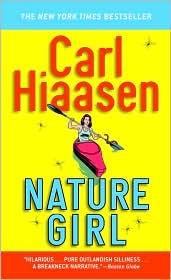 It took all of three days for me to read this book. I point that out in case the following review seems at all negative (which it will).
It took all of three days for me to read this book. I point that out in case the following review seems at all negative (which it will).